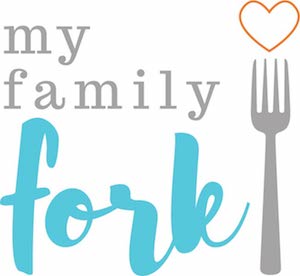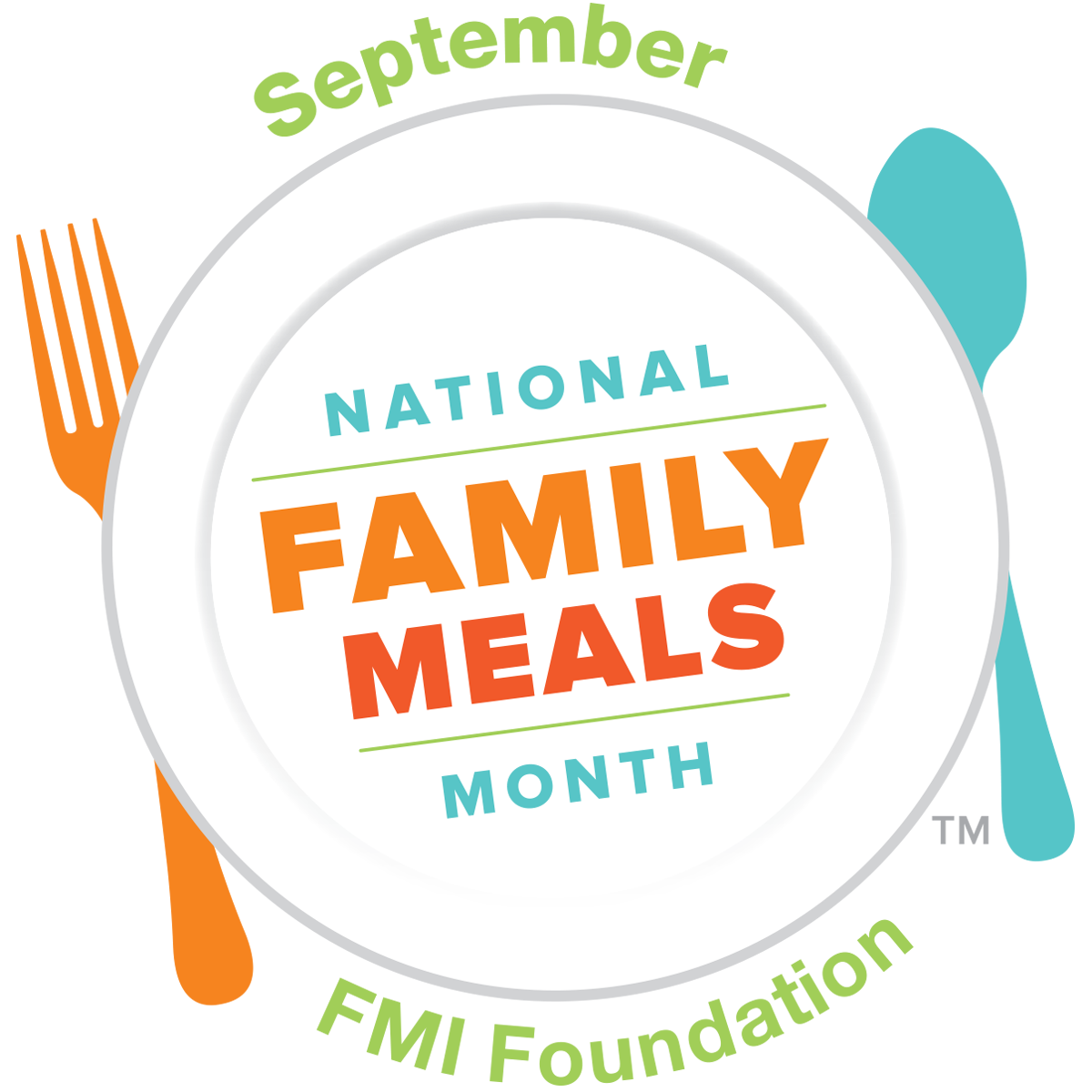
Sharing a meal with our family is like eating fruits and vegetables—we know it’s good for us, maybe it’s something we’d like to do more often, but somehow things can get in the way. Conflicting schedules, lack of time and varying food preferences are just a few of the common barriers families face.
Surveys show that among parents, nearly EVERYONE feels that family meals are important, and statistics back up this sentiment—more than half of families eat a meal together at least five times a week. Yay! But a third of families eat together less than three times a week, which means they are not reaping the various social, developmental and nutritional benefits that eating together provides.
Benefits of family meals:
- Better diet quality—families who eat together tend to consume more fruits and vegetables, whole grains, vitamins and minerals.
- Children have a decreased likelihood of substance use in their lives (alcohol, drugs, tobacco).
- Children demonstrate better academic performance.
- Children are more likely to have a positive relationship with food, with less risk of developing disordered eating patterns.
- Families enjoy improved relationships and a sense of connection.
- Family meals provide structure to daily activities, improving children’s sense of security.
- Eating together offers more opportunity to role model healthy eating behaviors and to teach manners.
- Adults enjoy improved social and emotional health, showing higher self-esteem, fewer symptoms of depression and lower stress levels.
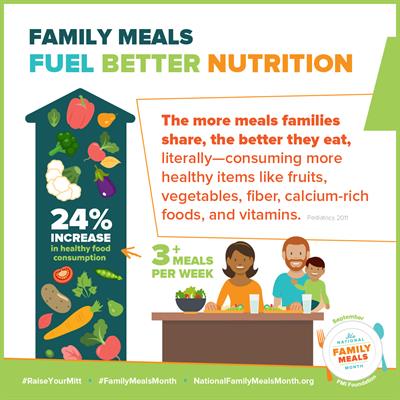
How to Eat Together More Often:
Families are busy, how do we find time together?
- Look at the calendar to find days and times when all family members are available. Family meals do not always need to take place at dinner time, maybe breakfast or lunch work better on some days.
- Don’t be afraid to get creative! With soccer season starting, I pack burritos to enjoy together on the field after practice—it’s our “Picnic After Practice!”
The Meal Plan. This doesn’t mean you are spending hours preparing every meal from scratch. It is simply thinking ahead so you aren’t left scrambling in the moment when you are out of energy, time and patience.
- Before the week begins, when you DO have time, sketch out your meal ideas for each day. This includes meals you prepare when you have the time; quick, easy meals when you have less time (think slow cooker and sheet pan meals); and even take out or restaurant meals when there are school events or you are celebrating a special occasion.
- Make decisions that work best for you, whether it’s cooking a double batch of marinara sauce, pulling sauce from the freezer that you previously prepared or buying a jar of prepared sauce from the store!
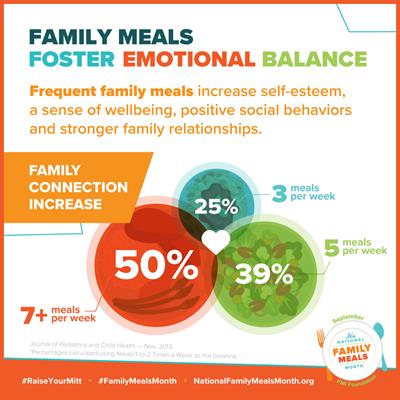
Everyone likes different food, how do I feed them all?
- Several strategies can lead to meals that everyone enjoys. Involve children in the process leading up to a shared meal—allow each family member to contribute ideas to the meal plan; have children help select ingredients at the store or harvest from the garden; give children tasks to help with meal preparation, like washing, measuring and mixing ingredients.
- Serve meals family-style, placing serving plates, bowls, and even cooking pots on the table from which each person can serve themselves. Even small children can do this with supervision and a little assistance when necessary!
- Children love a build-your-own plate. Try deconstructing a dish, offering each ingredient separately from which family members can choose. I make a “salad board” rather than mixing the ingredients and it has proven successful in getting my kids interested in eating salad!
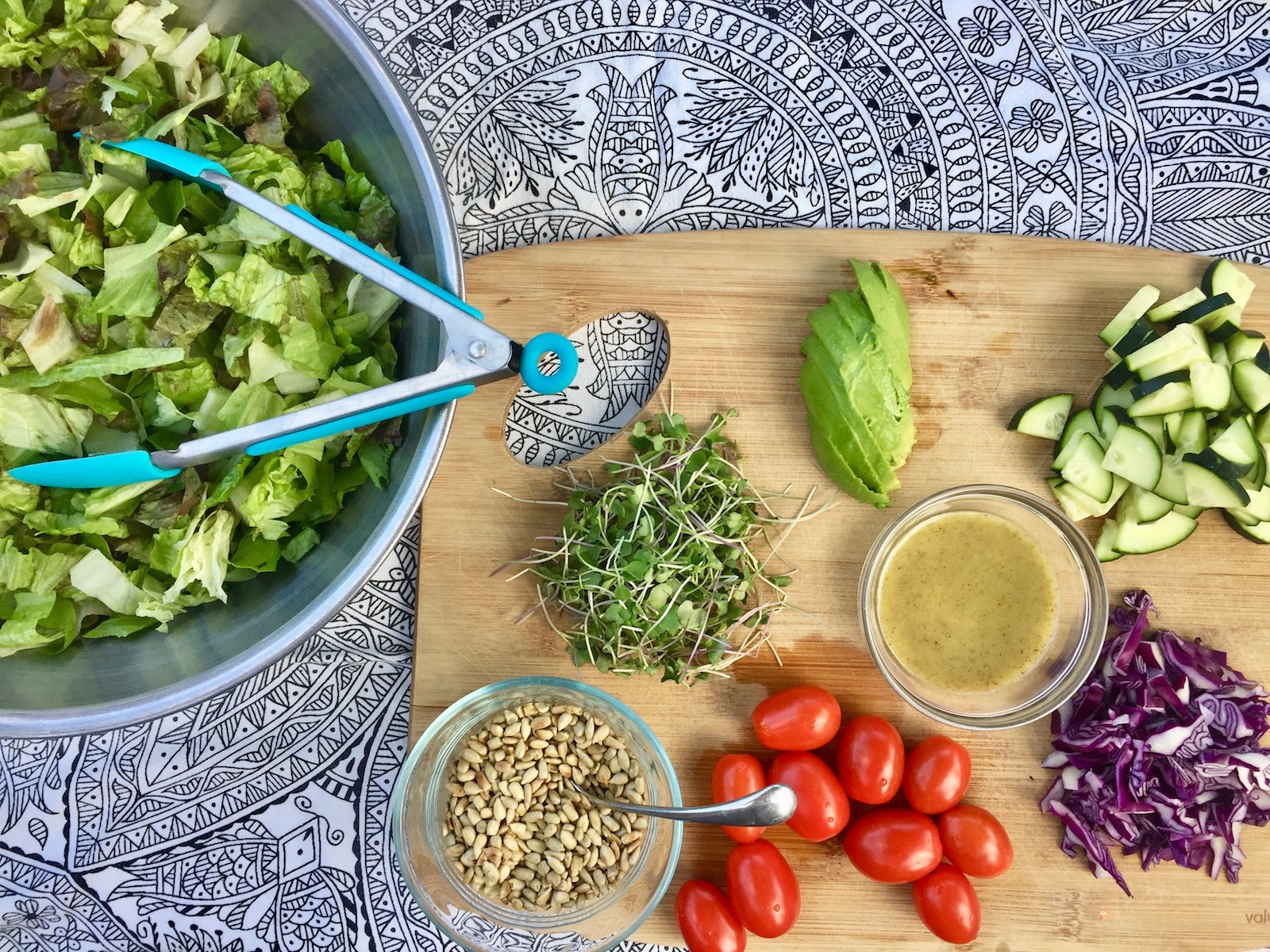
Tips & Resources
The number one priority of family meals is not what you eat or where you eat, but enjoying food together in a positive environment. Criticism, meddling and punishment do not belong at the table. Foster a fun, relaxing atmosphere and it will be everyone’s favorite family activity!
Learn more about one another and create stronger bonds using tools like conversation or story starters. We like to share jokes! Here’s a link to a website with free downloadable conversation starter cards!
Family meals provide the opportunity to share the traditions and culture of your family and others. Invite friends over or investigate a new cuisine and its origins together!
The Family Dinner Project is a wealth of information, inspiration and resources for successful family meals. They provide recipes, meal plans, tips, dinner games and more. You can sign up to receive e-mails with weekly meal plan ideas in English or Spanish!

What are YOUR favorite family meal traditions? What gets in the way of eating together more often? What strategies do you use to make family meals happen? Please share with us in the comments below!
